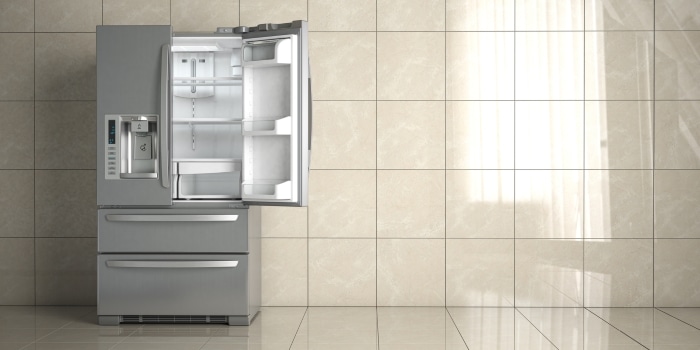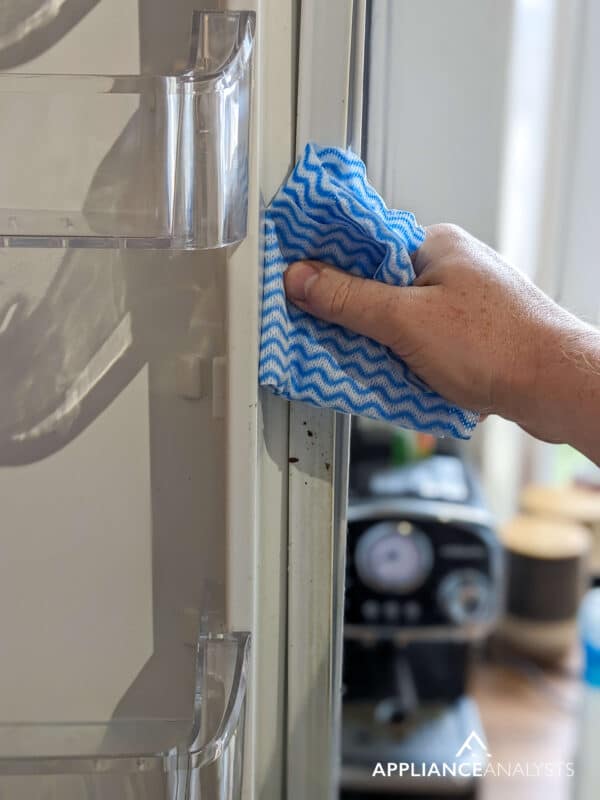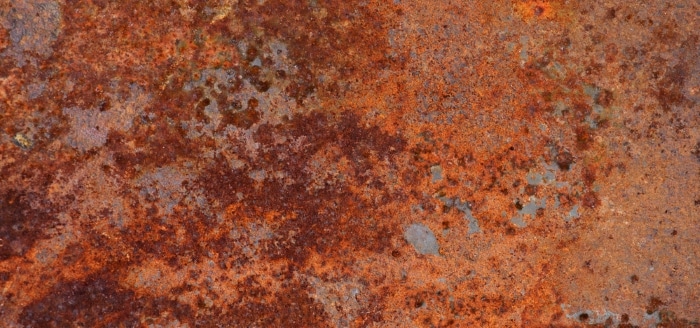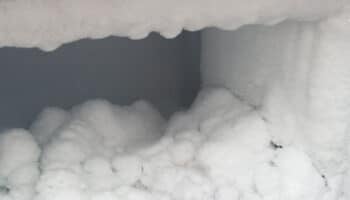We've independently reviewed this article to make sure it's as accurate as we can make it.
To find out more about our article creation and review process, check out our editorial guidelines.
Is your fridge door sweating more than an Olympic athlete?
That sucks! Refrigerators are meant to stay cool and fight against the effects of hot weather, not create puddles on your kitchen floor.
I know how having a sweaty fridge door can be concerning, not only because it likely indicates that it needs to be repaired but also because your food might spoil.
But don’t worry; you’ve come to the right place for answers. Below, you’ll find a list including 5 common causes behind a sweaty fridge door and some solutions and things to look out for.
When your fridge door is sweating, it can be due to condensation, insulation breakdown, or the fact that you own a certain type of refrigerator. In some cases, air leaks and brand-specific issues can also be to blame.
Keep reading to stop your fridge’s sweating!
Why trust us? This article was written by Craig Anderson and Andy Fulenchek.
Craig has helped thousands of other homeowners repair their appliances since 2016.
Andy is one of our resident appliance repair experts with over a decade of experience. He currently runs his appliance repair company with a team of trusted technicians.
Why Your Fridge Door Is Sweating
There’s no cookie-cutter answer to explain why your fridge door is sweating, as different factors can be at play and determine the main cause.
That said, from what I’ve seen over the years, there typically are culprits that are more common than others. Here’s what I recommend you do.
#1 Check for Condensation
The first thing I recommend you check for when your fridge door is sweating is whether condensation is present in the door and its frame.
Typically, condensation happens when the warm air in the environment comes into contact with the cold air inside the refrigerator. As I’ll discuss further, condensation can be the result of many factors, including a bad door seal or faulty insulation.
Depending on the severity of each issue, there might not be a way to solve the problem without considerable repairs.
#2 Consider Insulation Failure
If your fridge door is sweating, there’s a good chance its insulation is damaged and unable to do its job. Modern refrigerators are kept airtight through the door gasket and have insulation in and around them.
From what I’ve seen over the years, refrigerators are typically insulated with polyurethane foam due to the material’s low thermal conductivity. If your refrigerator door is sweating, there’s a good chance its insulation is not doing its job.
Solution: Naturally, the easiest way to check your appliance’s insulation would be to open it and look for anything out of order. However, opening your fridge to check the polyurethane insulation isn’t easy or quick.
Instead, in addition to the sweating door, I recommend you look out for the following signs:
- Temperature fluctuations.
- Condensation.
- Higher-than-normal energy bills.
- A compressor that runs all the time.
- Signs of wear and tear (usually from old age).
When I see some (or all) of the abovementioned signs, I’m about 90% sure there’s an insulation problem. If so, don’t worry; you’re not out of options.
You can buy sticky-back insulation for your fridge’s frame to restore some of what’s been lost over time. Granted, the exposed material won’t look pretty, but it’ll keep your appliance better protected against external climate conditions.
#3 Check Your Refrigerator Type
Not all refrigerators are built the same, and garage models are a great example of this.
Given that garage refrigerators are typically placed closer to the outside world, they’re more prone to show condensation and other similar issues. So, if you own a garage fridge and the door is sweating like crazy, it’s actually normal up to a certain point.

Solution: My usual recommendation is to monitor how your garage refrigerator behaves.
Is your food okay? Are your electricity bills higher than normal? Do you notice the compressor runs too long too often? Ask yourself all these questions and answer them to determine whether the condensation poses a problem.
#4 Check the Door Gasket
A damaged gasket can also explain why your fridge door is sweating.
Your appliance’s door gasket allows for an airtight seal that keeps the food inside protected from the outside heat. When the rubber door gasket comes off or breaks, air can go into your refrigerator and cause condensation, leaking, and poor temperature regulation, resulting in spoiled food.
I’ve found that refrigerator door gaskets can come off or sustain damage due to age, accidental tugging, and other factors that come with daily life.

Solution: First, you’ll want to determine whether the gasket is damaged, loose, or improperly placed.
Look closely at the rubber strip running along the refrigerator door’s edges and try to spot any pinholes, tears, or cracks. If you don’t find any damage, you can bend the seal back to its original shape and use a hair dryer to help make the rubber strip easier to work with. Then, close the door and give the gasket a few hours to settle.
Provided you spot damage, you’ll need a new gasket. Typically, you can get a replacement from your manufacturer – all you need is your refrigerator’s model number to ensure you get the right part.
Once you have the new gasket, you can either opt to install it yourself or call a professional to handle it.
#5 Check Your Fridge Brand
Some refrigerator brands are better than others. If your fridge door is sweating, you’ll want to look into your appliance’s make and model, as there’s a chance the sweating comes from a model defect that your manufacturer is aware of.
According to Andy, our resident expert, Frigidaire refrigerators are known for insulation problems in certain areas. Although not true for all the brand’s models, it’s something I’d be remiss not to mention.
Solution: My usual advice is to go to Google and search for “[Your Refrigerator’s Brand and Model] insulation bulletin“. You can use other keywords, like “door sweating” or “door condensation” to see if you can find useful information.
Typically, when many customers have a specific issue with a certain refrigerator, manufacturers work overtime to find a solution. So, if there’s a bulletin, there’s likely a tried and tested fix to address the problem.
When Is the Sweating Cause for Concern?
As I mentioned earlier, a sweating fridge door is not always a problem that must be addressed, or that should cause you to worry. Sometimes, the situation is normal up to a certain point. Here are some things to consider.
Occasional Sweating
A fridge door that’s sweating occasionally could be completely normal under the right circumstances. If the area where you live is very hot or is getting higher-than-normal temperatures, a little condensation is to be expected.
In my experience, you shouldn’t be worried about the situation unless there’s leaking, your electricity bills are skyrocketing, or your food is going bad faster than normal.
Constant Sweating in Climate-Controlled Environments
If your fridge is always kept inside your house, and the weather isn’t sweltering, yet the door is sweating like crazy, then you have a legitimate cause for concern, as the situation is indicative of a larger issue.
In many cases, a sweaty fridge door showing excessive condensation results from poor or damaged insulation inside the appliance. If your situation is related to an insulation issue large enough that it needs more than sticky back insulation pads, I’m afraid I have bad news.
Non-Reparable Issues
Although, in most cases, the solutions provided above will help your fridge door stop sweating, sometimes you can do nothing except replace the appliance. Here are some non-reparable issues you should be on the lookout for.
Rust Through the Wall
When your refrigerator is exposed to harsh climate conditions, it’s much more likely to get rusted than when it is inside in the comfort of your home.
If you keep your refrigerator in your garage or anywhere else where there’s rain, excess humidity, and direct sunlight, it’s critical that you monitor its condition constantly.

Rust is very aggressive, so if it gets through the appliance’s door, the insulation properties it was built with will no longer work as they should, and you’ll get excess condensation, a sweating door, and spoiled food.
From what I’ve seen in such cases, the refrigerator is typically beyond repair, and you’ll have to get a new one.
Severe Insulation Breakdown
Although certain refrigerator brands and models are better known for having faster-than-normal insulation breakdown times, the problem can happen with any product.
If you notice any of the symptoms mentioned above, it’s very likely that the refrigerator is no longer insulated properly, and you’ll need to buy a replacement appliance as soon as possible.
Addressing Your Fridge Door’s Sweating
That about covers it!
When your fridge door is sweating, a thousand terrible scenarios can cross your mind, and you’ll probably start worrying about how much you’ll have to pay to fix the problem.
Luckily, as I hope this piece has helped you better understand, addressing the most common causes behind a fridge door sweating can be rather easy. In many cases, something as simple as checking the door gasket to ensure a proper seal will do the trick.
Thanks for reading. If this article was useful and answered your most burning questions, please check out our other resources below and consider subscribing to our newsletter.
Have a great day!
-Craig.








